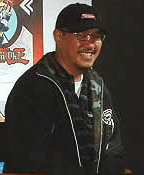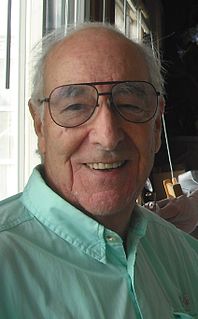A Quote by Akira Toriyama
A number of years ago, when I had an exhibition of my work, the people in charge who came to pick up my manuscripts saw them piled up haphazardly in the garage and were shocked. 'What? They'll grow mold like this!' they said. People who do things properly apparently make a dedicated manuscript room, where they can control humidity.
Related Quotes
The first exhibition that I used bright colours in painting the room was at a gallery in Paris, and there were seven rooms in the gallery. It was very nice gallery, not very big rooms, around the courtyard, it was a very French space. So I painted each room in different colour. When people came to the exhibition, I saw they came with a smile. Everybody smiles - this is something I never saw in my work before.
The things I saw beggar description ... The visual evidence and the verbal testimony of starvation, cruelty, and bestiality were so overpowering as to leave me a bit sick. In one room, where there were piled up twenty or thirty naked men, killed by starvation, George Patton would not even enter. He said he would get sick if he did so. I made the visit deliberately, in order to be in a position to give first-hand evidence of these things if ever, in the future, there develops a tendency to charge these allegations merely to "propaganda".
I remember talking to, 40 years ago, one of the leading people in the government who was involved in arms control, pressing for arms control measures, détente, and so on. He's very high up, and we were talking about whether arms control could succeed. And only partially as a joke he said, "Well it might succeed if the high tech industry makes more profit from arms control than it can make from weapons-related research and production. If we get to that tipping point maybe arms control will work." He was partially joking but there's a truth that lies behind it.
I've loosened up over the years about materials. I started off working for Matthew Barney, and that's what his mentality is. Even while we were making pieces, like a mold, the mold would make sense conceptually with the piece. That's how deep his symbology goes. I've loosened up over the years because I very much had that mentality.
When we talk about magic a lot of people think you use that to pick up girls. So therefore there's this slimy connotation associated with it, like, "Oh hey, pick a card - my number's on it!" So I think I've avoided ever having people think that's what's happening. I try to make magic the treat of the interaction or the treat of the flirt. I've never gone up and tried to do a trick to get a girl's number, only because I feel like that's what people expect and it feels slimy.
When I became director of the Metropolitan Museum of Art, it was stodgy, gray, run by elitists. I said, 'Hey, let's kick the thing around.' I wanted to attract young people to the museum. I said, 'Make it hospitable. I want them to come. I want them to make dates, pick up girls, pick up boys - either way; I don't care.'
Some years ago I was working on some forms which were vase forms with a fairly narrow base, and it was after [Hans] Coper had died that I saw an exhibition of his, a catalogue from an exhibition, and he was showing some forms which were made by cutting and joining a lot of different parts together to create what he called a spade form, which you can imagine looks a little bit like a shovel upside down.
I couldn’t forgive him or like him, but I saw that what he had done was, to him, entirely justified. It was all very careless and confused. They were careless people, Tom and Daisy—they smashed up things and creatures and then retreated back into their money or their vast carelessness, or whatever it was that kept them together, and let other people clean up the mess they had made.
Until I was about 7, I thought books were just there, like trees. When I learned that people actually wrote them, I wanted to, too, because all children aspire to inhuman feats like flying. Most people grow up to realize they can't fly. Writers are people who don't grow up to realize they can't be God.
Another factor is the education and culture in which you grow up. I didn't grow up in the culture of victory, where you are expected to be or have to be, the best. It was not at all like that in my family. Tennis was really a hobby. If it led to something, great. If not, there were other things in life. I think that was something I was missing at some points in my career, because when I see Hingis or the Williamses, you see how they were educated for this: to win, to be the best, a bit the American mentality. Number one. Number one. Number one. I didn't have this.
People are most shocked and most in disbelief that I go to the office every day. I have a job. When I'm not acting on a movie, I go to work, first thing in the morning. I'm at work at 8 o'clock in the morning, and I get home from work at 7 o'clock at night. I treat my job like a job, and I work at it. I think people would probably be most surprised, if I ever calculated up the number of hours I work on an average week and published that. If it was ever documented, I think people would be shocked to find out.
My favorite leader is George Washington. Because he came from very modest circumstances. He wasn't the son of a plantation owner. He was the son of a farmer. He had no formal education, very frustrated. He started writing a diary when he was in his teens, and he wrote things like, "When I grow up, I want to be respected. When I grow up, I want to be successful. When I grow up, I want to know things." What I find fascinating about Washington is he wanted to make something of himself.








































